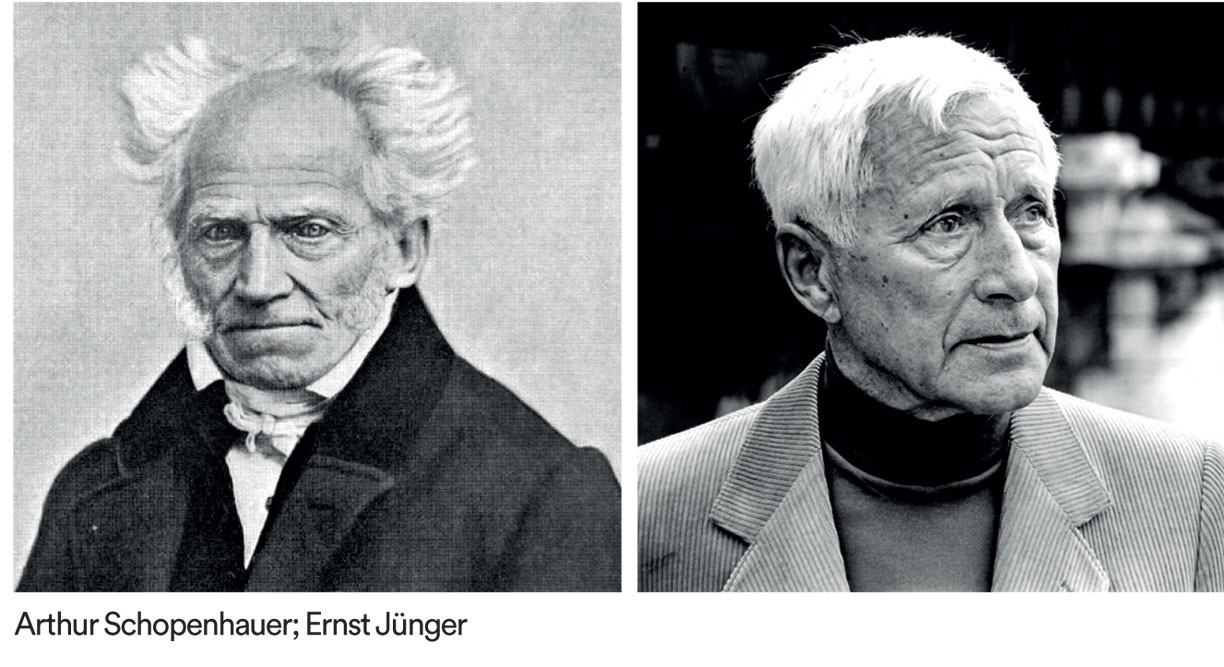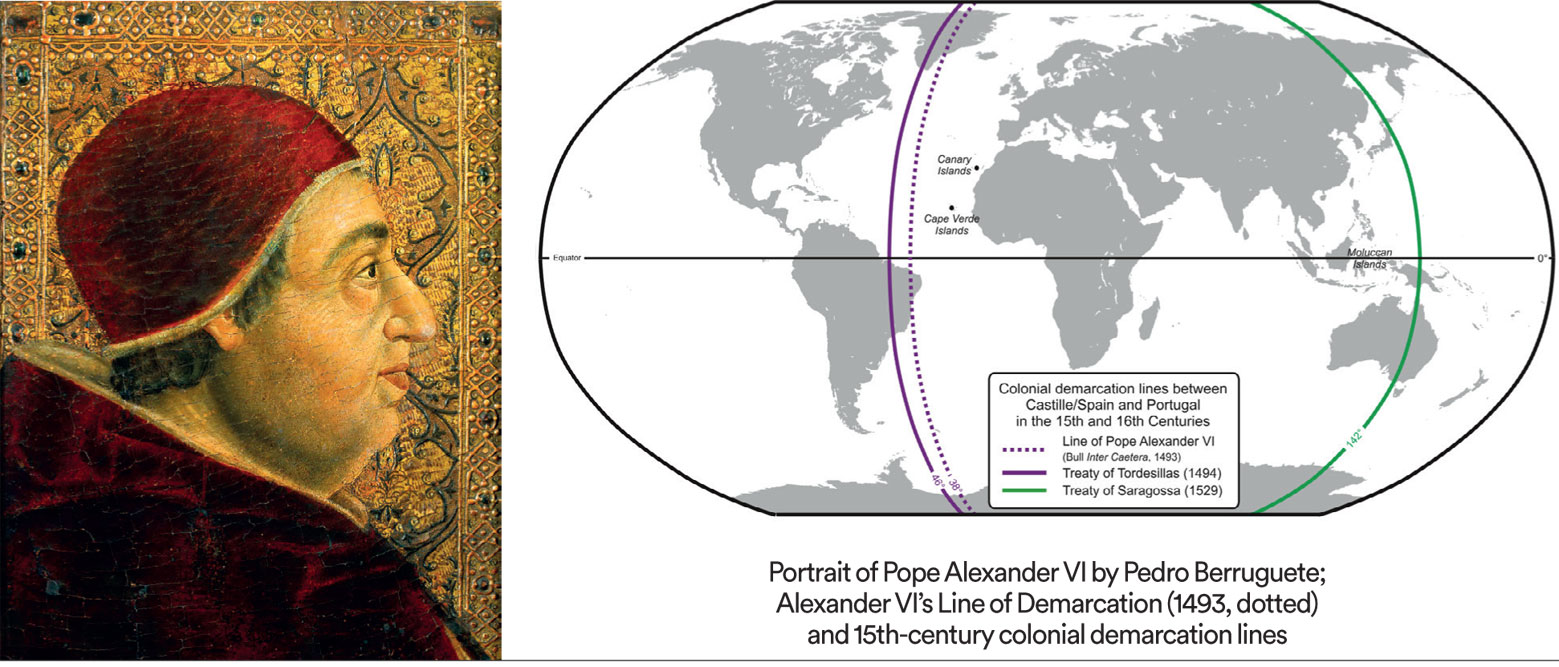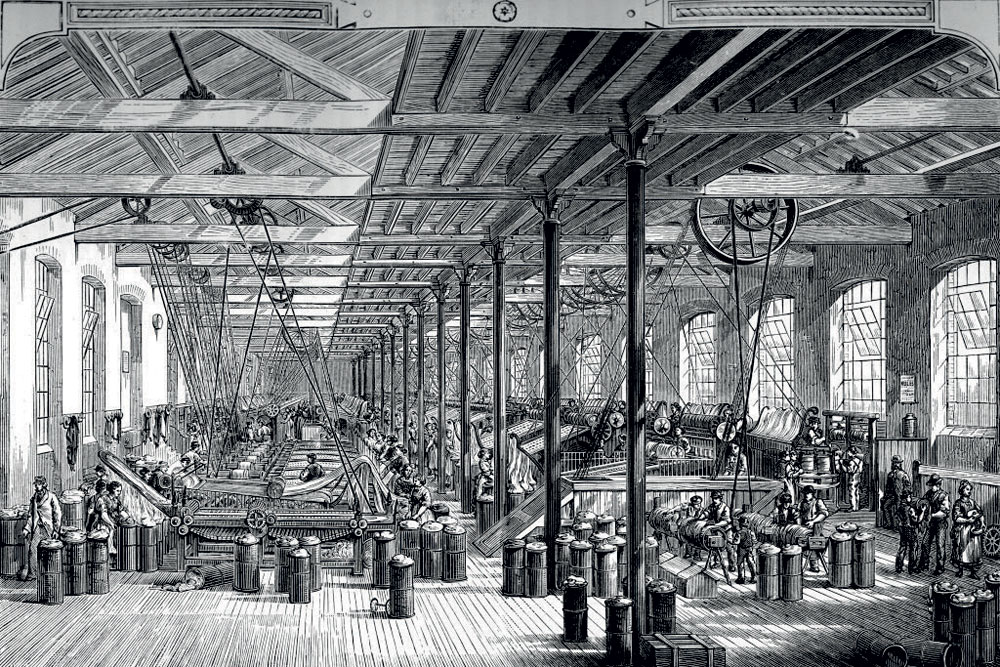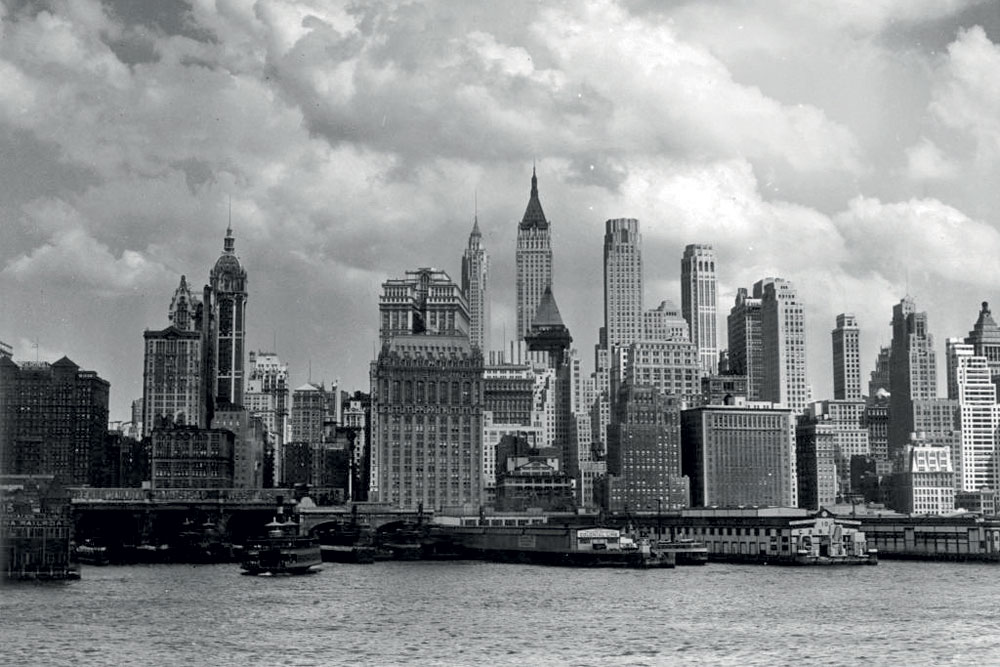Delusions of the West
The limits of reason and the politics of domination
 Carlo Pizzati
Carlo Pizzati
 Carlo Pizzati
Carlo Pizzati
 |
12 Apr, 2024
|
12 Apr, 2024
/wp-content/uploads/2024/04/WestDelusion1.jpg)
Alexander the Great Cuts the Gordian Knot by Jean-Simon Berthélemy (Photo: Getty Images)
THE IDEA OF the West and Western culture has both a defined historical origin and an endless rebirth. The West, meaning Europe, North America, Australia, New Zealand, Japan and South Korea—known today as the Global North—has a specific and rigid perspective of itself, and has remained stubbornly uninterested in how other cultures perceive it, unless when feeling threatened by such views.
Still under the guidance of the cultural, political, economic and military thrust of the US, the West has concealed a lack of openness under the guise of the concept of freedom, alleged diversity and inclusiveness. It has veiled its lack of flexibility under the philosophy of relativism. The drive for supremacy and domination that has guided the West throughout history, especially since the Renaissance, is slowly coming to the light, year by year, as diverse narratives and perspectives attempt to gain consideration.
While scientism and faith in progress have provided the West with the illusion of a direction since the 1800s, the resulting contemporary medical technocracy has first saved and then partially poisoned those who can’t escape this deeply transactional culture. The chemical gods of today have given new shapes to centuries-old dependencies, like the one on opium, while manufacturing new potions that feed modern obsessions, like weight-loss stomach injections.
The lack of honest confrontation on an equal footing with other cultures on these topics has damaged the West, preventing it from acquiring useful knowledge. The only German philosopher who attempted to translate what could be learned from a culture that appeared alien to European values, but that could have ameliorated the West, was ostracised as a pessimist. Schopenhauer analysed what the West’s penchant for domination of nature could result in. And he pointed East, to Indian philosophy, for a solution. His warnings have been widely misinterpreted or ignored.
In the discernment of the West, the non-West is perceived as a subsystem, as the terminology itself indicates. Yet, the frontiers of what the West actually is today are more impalpable and increasingly muddled, dissolved by the superstructures of social media, search engines, operating systems, software, hardware, and artificial intelligence (AI) that are themselves exporters of culture, mostly the Western one.
As a symbol of telluric power and its limits, the Gordian Knot has often been evoked whenever Europe meets Asia. Alexander the Great learned that any man who could unravel the knots was destined to become ruler of all of Asia. With a single stroke of his powerful sword he cut the knot in half. And went on to conquer parts of Asia
Yet, while producing culture and disseminating it via the invisible digital highways, the need to fabricate an image of the ‘other’ is persistent. The factory producing exoticism never takes a break. The manufacturing of the ‘other’ is unrelenting, indispensable as it is for the ‘us’ to affirm an identity and a sense of purpose.
If you are white and poor in a strongly stratified world, who can you be better than if not people with browner skin?
The ‘other’ is then boxed conveniently in the mysterious and the magical. The need to perceive what is not in the West as something primordial, mystical and backward is still botching the West’s understanding of the world. Because the relationship is based on fear of the unknown.
The religion of constant change and innovation guides the West’s restlessness. The fear of what Japanese author Jun’ichir Tanizaki defined as “the shadow” has not found a cure. The differences seem as equally exacerbated internationally as they were before low-cost travel fostered the hope of greater global understanding. The West’s more urgent question now seems reduced to how to age gracefully and not be euthanised ahead of its time.
THE GORDIAN KNOT
As a symbol of telluric power and its limits, the Gordian knot has often been evoked whenever Europe meets Asia, especially every time it needs to be cut again. This is what Ernst Jünger, from a deeply entangled Western perspective, explained in his Der Gordische Knoten in 1953. According to the German thinker, this legend represents how the West was born in juxtaposition to the East by mustering an innovative “out of the box” solution which was, literally, “at hand”.
According to an ancient prophecy, the leader who would be able to untangle the Gordian knot would gain control of the world. The boon at the heart of this founding myth reveals an objective which has become an eternal obsession and a primordial curse that ensued from this mythical event: dominion.
When the inhabitants of ancient Anatolia, the Phrygians, were looking for a new king, an oracle decreed that the first man to enter the city of Telmissus riding on an ox-cart would be the next ruler. This was the peasant farmer Gordius, whose son Midas dedicated the ox-cart to the god Sabazios (or Zeus, Jupiter) by tying it to a post with “several knots so tightly entangled it as impossible to see how they were fastened,” as described by Roman historian Quintus Curtius Rufus.
When, in 333 BCE, Alexander the Great arrived at the palace of the former kings of Phrygia, now a satrapy of the Persian empire, he learned that another oracle had declared that any man who could unravel the elaborate knots was destined to become ruler of all of Asia. Again, a boon of dominion was offered. Alexander the Great tried but was not making progress when he suddenly was hit by an illumination: with a single stroke of his powerful sword he cut the knot in half. And went on to conquer parts of Asia with his army.
“This is the symbol of all the encounters of Europe and Asia,” writes Jünger. When used this way, the sword becomes spiritual, an instrument of free and resolutive will. The knot represents the necessity of destiny, the shadow, the mysterious plot of the obscurities and impotence of humans in front of the oracle. The sword cuts through all this.

Jünger also sees in the spires of the knot the archetypal symbol of the connection between the underworld and the surface: the snake. When Alexander cuts the knot, he is also killing the snake, the animal that according to Western perception represents the dangers of Nature’s mysteries. It is the link connecting the subterranean to the surface. It’s the python of ancient Greeks, the dragon, the Midgard serpent of Germanic mythology, the snakes in Medusa’s head killed by Perseus by using his shield as a mirror, so as not to be turned into a statue by the gaze of the monster. The ‘unknown’ is also the dragon speared by St George’s lance, nature being tamed, fears being conquered. It’s the hero using “the weapon of conscience to break the telluric constriction.”
So it is the killing of the serpent that opens the way for the West to real and mythical power. Alexander, with his blondness, is a golden symbol, a shining light, an Apollonian force which Jünger seems to equate with Reason, an allegory sealing the dominion of new territories of conquest. Ultimately: a white guy using brutality and wit to conquer the land of the superstitious brown people.
The philosopher who attempted to translate what could be learned from a culture alien to European values was ostracised as a pessimist. Schopenhauer analysed what the West’s penchant for domination of nature could result in
According to Jünger’s famous analysis of the relationship between Europe and Asia, “whomever heads towards the Orient has the feeling that the plot of destiny becomes thicker, that he is going back to a primordial past. Ancient images re-awaken in his mind. His life becomes more intense, more serious, more terrestrial. By comparison, European culture and liberty appear like later and more recent phenomena.”
Of course, by “whomever” the author means a Westerner like himself. If you are Asian or have lived a long time in Asia you won’t experience this feeling of densification of fate. It’s an initial cultural shock that unravels such phenomenon.
The German philosopher believed that Alexander the Great cutting the knot or killing the snake metaphorically is the symbol of the separation of humans from the gods, from nature, from objects, and from themselves.
For this Western thinker, Asia is a holy land, it is more ancient than Europe even metaphysically. “Asia is the cradle of populations, mother of humankind before and after the universal deluge.” It is where the gods are from, he writes.
Finally, he admits what the relationship between East and West is destined to be, committing a recurring mistake: “Western man will always try to fit Asia in the luminous circle of its own history. And forever he’ll find himself facing another light that, shining before and beyond history it’s the only one that makes possible the existence of every measurable time.”
THE PRECARIOUS FACTORY
The first light that a Western person sees emerging from the darkness of gestation is artificial. “We give a human shape to the Abyss calling it being born and dying. Today, the Western man arrives in the world in a rational and scientific setting. He is born in a surgical theatre.” This is what Pierre Legendre writes in La fabrique de l’homme occidental (1996), or The factory of Western Man.
In the West, the French psychoanalyst and law historian writes, one must always escape the matrix and separate oneself from the unspeakable Abyss. Again, he speaks of the mysterious shadow hidden in the Gordian knot, which ultimately could be the acceptance and cohabitation with the concept of death.
But in the West people are too lost in their obsessive “search for meaning” to be bothered with such mysticisms: “As soon as the baby has cried, we give a meaning to his cry, because the cry of a newborn is already a word. Wrapped in diapers and words which help him being born, man lands in the world of ‘why’?” Today a Westerner is born in the humus of scientific and philosophical inquiry, not in that of theological acceptance.

Legendre explains how in Western culture the mystery of existence is contained by our need to build a reason to live, our obsession for explainable meaning. This is the daily genesis of Western identity. “If Reason disintegrates, life will perish in our species. We, the descendants of Europe, children of wars that were holocausts, promoters of industrial happiness, conquerors of unknown sciences, we have forgotten that the Factory of man is precarious.”
When Pope Alexander VI drew a line from the north to the south pole in 1493, in the name of a Christian empire, he inaugurated an era where westerners perceived ‘the other’ in relation to how they, the Europeans, perceived themselves
We are lost in contemplating an image in the mirror. Its meaning is constructed by language which “sets us apart from things. It separates man from his own kind and from himself. Language is the Mirror for man… Where humans don’t sustain language any longer is where the massacre reappears… Civilizations are word factories which are built with words. They teach humanity the emptiness and separation which makes the word possible.”
In this, all civilisations are alike. But the West is different in one aspect: “…it wants that the Abyss is filled in its own image; it sees itself as a Mirror of everything.”
It is in the domineering relationship with Nature and with the Void that Western mentality asserts its invasive difference from other cultures. “Us Western industrialists, we have invented the constant noise, the mountains of objects, the totalitarian presence of the full.” Cutting the Gordian knot has emptied the mystery of the shadow and of the void, filling it with our polluting and hyper-inflated reality of things, possession, traffic, material confusion.
All this, in Legendre’s view, has a historical explanation. “The first of the European revolutions—between the 11th and 13th century—has reshaped the entire world, it has been a ‘war of God’ engaged at the same time against the Jewish idea of the Law and against the Quran’s normative. That Revolution— which was a war of texts, using as its instruments Christianity and Roman law—has created the emergence of the State and the Law, a certain idea of power and of genealogic relationship. Who could dare to say that those wars are over?”
It is Roman law which has made Western modernity possible. In the Middle Ages that legal canon became the raw material used to mould the modern State, by mixing it with Christian dogma. This came at a price: “The West has disassociated the body from the spirit—an immense tradition with a thousand variants according to the country, to the point that it has at times pretended to build schools for pure souls.”
Behind the modern states lies the concept of patriarchal power. “In the West, God is the mask behind which the idea of the Father lies in shelter.” It is this Father that protects the Western citizen from the Abyss, with a barrier made of words seeking an elusive meaning, “a world freed from thought, but governed by the violent.”
THE ILLUSION OF PROGRESS
The creed of this divine mask is called Progress. Rather, Western culture—with its states born of Christian faith mixed with Roman law—has evolved into believing that humans, thanks to their knowledge, can control their environment and prosper like never before. This is Western thought in a nutshell as delineated by an often misunderstood and underestimated text: Straw Dogs by British philosopher John Gray.
“For humans, science represents a shelter from uncertainty, it promises, and to a certain degree it accomplishes, the miracle of liberation from thought: belief and religion, instead, have become sanctuaries of doubt.”
Here is that Gordian knot again. The belief that the sword of Reason cuts away the mumbo-jumbo of the unknown and thrusts forward into conquering and dominating the world, religions trailing behind as side effects.

“Religious fundamentalists,” Gray writes, “believe they own the cure of the evils of the modern world. Actually, they are the symptoms of the disease they pretend to heal.” The unknown, trying to organise itself in reaction to the power of Reason, scientism and the cult of progress, lags behind.
But irrationality is inescapable. For contemporary Westerners blind faith in progress represents the only antidote against their greatest fear: nihilism. The possibility of a universal lack of meaning is too scary and depressing to accept because it is approached from a needy Western materialist point of view.
The pursuit of meaning is not the secret of happiness. It can be its exact opposite. But it’s become a byproduct of the concept of progress, of the need to explain everything in rational terms in order to be contemplated or accepted.
Most critiques of American culture have identified in the western city the habitat to breed indifference. Analysing the capital of the industrial revolution, Manchester, Engels criticised the lack of solidarity in the society of ‘atomized’ individuals
The idea of progress builds its shaky foundations on the illusion of free will and the obsessive need for change and innovation. What the Western mind is fixated on resisting is what Schopenhauer accepted and welcomed—the central doctrine of Indian philosophy which, according to Gray, is that “the idea of an individual free and self-aware, the idea at the heart of Christianity and humanism, is an error which prevents us from seeing what we really are.” Meaning, in Gray’s view, humans are animals just like all other animals, pieces of the puzzle, not necessarily at the centre of it, although deluded into believing we are.
As Legendre explained in another important cross-cultural analysis, Ce que l’Occident ne voit pas de l’Occident (2004), the West has a hard time seeing all this because it has repudiated the mystical dimension and the ritual of passion. It conceives of the Universe as a text to be deciphered, it looks at Earth as God’s autobiography to be read and interpreted.
“All Westerners are descendants of this vision of Nature as a message to be deciphered, of the image of divine Power as a despotic ruler exercising his rights of universal dominion.” Again, that very central word for the West: dominion. It conceives of a god obsessed by the West’s own obsession for power.
The Nietzschean “death of God” has made room for its substitutes: Progress, Science and Democracy, perceived as the children of the Enlightenment, the philosophy of the Industrial Revolution and of Positivism. This regional, European misunderstanding has become an export product, as the “discovery” of America and the pillaging of its riches by an invading ethnic group, massively exploiting slave labour, finally gave the West a theological and scientific planetary image.
CUTTING THE WORLD IN HALF (AGAIN)
When Pope Alexander VI drew a line from the North to the South Pole in 1493, dividing the world among Catholic kings in the name of a Christian universal empire, he inaugurated an era in which, more than ever before, Westerners perceived “the other” in relation to how they, the Europeans, perceived themselves. Dominators and dominated. This is how Christianity was able to dehumanise the populations with brown or black skin it met, while working on its world dominion. The West felt that its political science, its constitutional laws, its sociology “were ‘frozen theories’ to be exported everywhere in a Westernized planet.”
It was the sword cutting the Gordian knot, the shining golden light of Alexander the Great still reverberating through the centuries, which empowered the West to mark modernity with the fanaticism of abolition and change, “the illusion of being capable of dominating all possible ties, including time, striving for abolition of death.”

The limit of this system founded on the pursuit of Reason, of rational enlightenment, of the fear of how nourishing the idea of shadow and darkness can actually be, has eventually taken its toll in the contemporary neurosis caused by centuries of industrialised urbanisation, exacerbated today in the mental infrastructure created in humanity by digital relations.
“The West,” according to Legendre, “fails to see that the not known, the misunderstood, in other words the negative dimension, structures human knowledge, and before all it structures self-knowledge.” This is also Tanizaki’s lesson, among many other Asian thinkers.
In order for words to make sense there needs to be an empty space between them. Meaning is created by the existence of non-meaning as well. Understanding feeds on the void, obviously. It is a manifestation of what was hidden. The hidden needs to exist in the unknown form before manifesting itself.
The limit of this system founded on the pursuit of reason has eventually taken its toll in the contemporary neurosis caused by centuries of industrialised urbanisation, exacerbated in the mental infrastructure created by digital relations
The darkness is not beyond Phrygia. It is within one’s self. Cutting the knot isn’t enough. “The West does not see and does not accept a part of itself: the other part which is alien, repulsive; it escapes from it, and it is only the arts, music, and poetry that are left in charge of the un-sayable,” Legendre concludes.
But the arts, music and poetry have failed to truly formulate the unsayable about the West, so far. They have failed to grasp an outside view on the West. Or rather, they have not allowed it to enter the discourse.
The West has been able to receive music, theatre and literature from the non-West, but by exoticising these forms of expressions it has avoided the political and institutional consequences that such exposure would normally bring.
The reason is that the West is not capable of deeply questioning its identity. Whenever it has done so, such as when faced with the indigenous critique of the monarchic European system from Native Americans—which injected the concepts of freedom and equality in Western philosophy in the 1700s, leading to the French Revolution and the Enlightenment—it has taken centuries to partially acknowledge the origin of such external influences.
The Mirror of the West is clearly flawed. And whenever the West has attempted, even relatively recently, to look at itself through the eyes of others, it has failed to accept the image reflected back. Because, again, it has analysed the external view from a position of dominion, within the rules of a relationship of power.
A perfect example of this is Occidentalism: The West in the Eyes of Its Enemies by Ian Buruma and Avishai Margalit, portions of which first appeared in an essay published in The New York Review of Books in January 2002, only a few months after 9/11.
In their haste to comprehend the roots of the anti-American hate which culminated in such a massacre, the authors focused on Heidegger’s critique of Amerikanismus, on Arthur Moeller van den Bruck’s slightly more benevolent gaze on Amerikanertum or Americanness. While understanding how the West has mechanised and electrified the world, mostly through American but also European industrial and military power, the book also diagnosed the absence of soul in the societies generating such worldwide transformations. In other words, the cutting of the Gordian knot implied a sacrifice, the neglecting of a shadow which is also what feeds the idea of soul.
In fact, Occidentalism lists the accusations against the West of being a “soulless, decadent, money-grubbing, rootless, faithless, unfeeling parasite.” Most ideological critiques of American culture have identified in the epitome of the Rationalist project, the Western city, the perfect habitat to breed human indifference, the seed of the contemporary crisis of dehumanisation. This is why, in analysing the capital of the Industrial Revolution, Manchester, Friedrich Engels criticised the lack of solidarity in the society of “atomized” individuals, each pursing their selfish interests. And why Sayyid Qutb, the Islamic philosopher who inspired Osama bin Laden, speaks of seeing in America “the shocking sensuality of daily life,” what the Iranian ayatollahs call “Westoxification”. The roots of this anti-Western construct, Buruma and Margalit tell us, is originally to be found in German thinkers like Werner Sombart who criticised the Komfortismus of a society of merchants versus what he saw as the more noble society of heroes in Germany.
Germans, he wrote, had to reject the ideas of 1789 and the British merchant mentality: “Liberty, Equality, Fraternity are true merchant ideals, which have no other aim but to give particular advantages to individuals.” The typical merchant is interested only in “what life can offer him” in terms of material goods and physical comfort (hence Komfortismus).
In summarising Occidentalism as resentment towards an offensive display of superiority by the West based on the alleged predominance of reason, the analysis captures only part of the critique. Although it fairly reflects a feeling in the Global South against the imperialism of the mind imposed by the spreading of Western beliefs in scientism, or the faith in science as the only way to gain knowledge, it misses a wider point, which deals actually with harmony and the pursuit of serenity, not happiness (a very pertinent difference rarely examined, but crucial).
If technological and economic progress results in increased conflictual and self-harming societies, can it be defined as true development? If this alleged development poisons the environment and the body with toxins and harmful iatrogenic diseases more than other less developed systems, creating a self-suffocating vicious cycle, where is the advantage? If conflict and violence in society increases, creating anxious and fearful individuals who medicate themselves back to a perceived sense of normality, where is the superior result compared to a poorer society where suffering is also hidden but where a higher level of harmony is established by ancient mores?

/wp-content/uploads/2025/01/Cover_Kumbh.jpg)












More Columns
What does the launch of a new political party with radical background mean for Punjab? Rahul Pandita
5 Proven Tips To Manage Pre-Diabetes Naturally Dr. Kriti Soni
Keeping Bangladesh at Bay Siddharth Singh